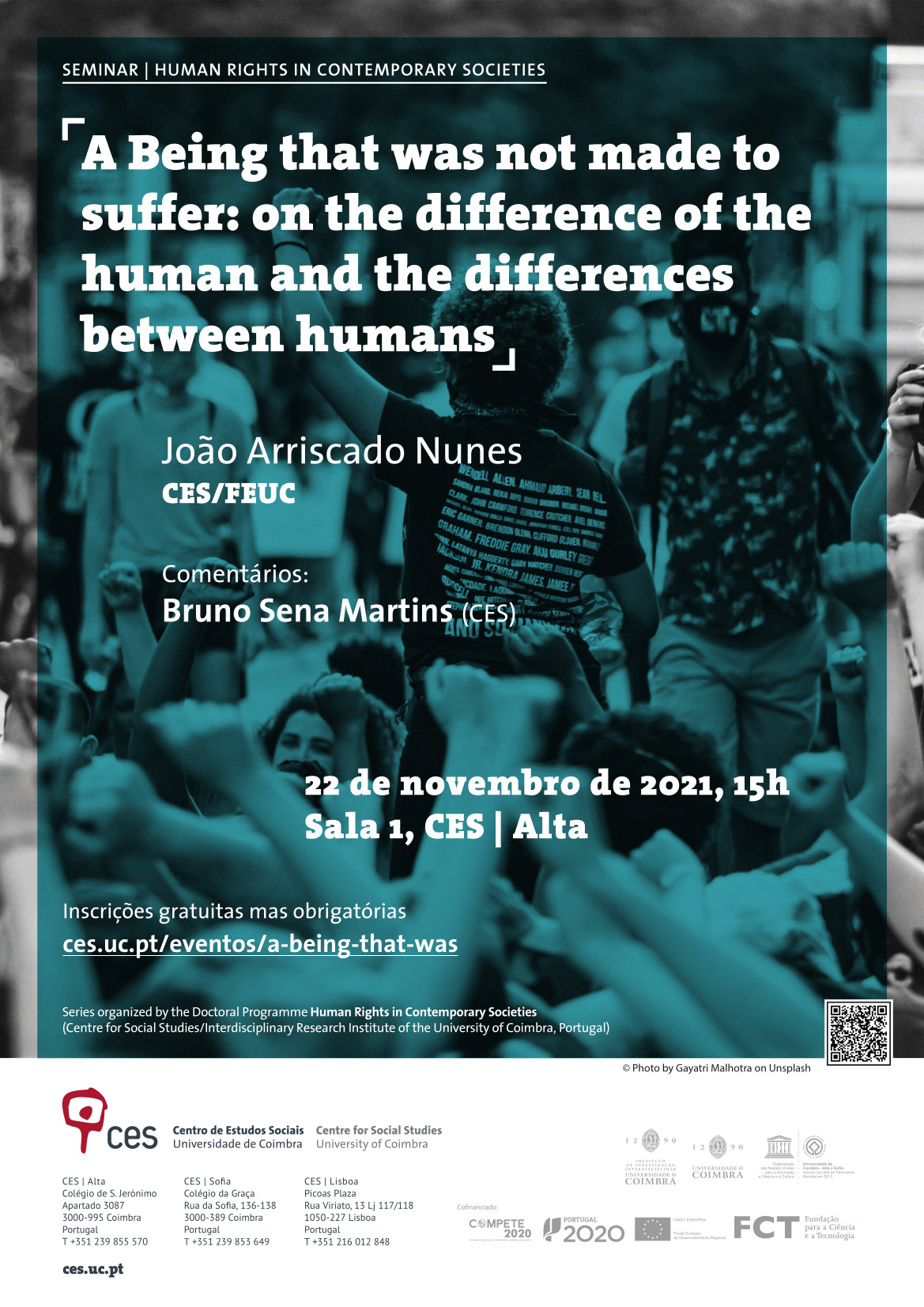Seminar | DOCTORAL PROGRAMME IN HUMAN RIGHTS IN CONTEMPORARY SOCIETIES
A Being that was not made to suffer: on the difference of the human and the differences between humans
João Arriscado Nunes (CES/FEUC)
November 22, 2021, 15h00
Room 1, CES | Alta
Overview
Drawing on a genealogy of humanitarianism, João Arriscado Nunes analyses the ways in which Western security and humanitarian policies are put into practice in “emergency humanitarian situations” and the forms of resistance which challenge them. This approach is the starting point for examining how human borders and attributes are expressed in different concepts of human dignity, as well as the differences between humans, including the denial and qualified attribution of humanness. Drawing on the epistemologies of the South, the author proposes a view of suffering that considers it a condition of human existence, but also the result of specific and mutually constructed forms of oppression which are differently named and recognised. The way in which humanitarian emergencies, mobilised by the struggle against particular forms of suffering and threats to life, very often produce a local and temporary suspension of the demarcation between human being and non-being, is illustrative of this argument.
Presentation: João Arriscado Nunes (CES/FEUC)
Discussants: Bruno Sena Martins (CES)
[Registration is free, but mandatory]
Recomended Reading: Nunes, João Arriscado (2021), "A Being that was not made to suffer: on the difference of the human and the differences between humans", in Boaventura de Sousa Santos; Bruno Sena Martins (orgs.), The Pluriverse of Human Rights: The diversity of struggles for dignity. New york & London: Routledge.
Organization: Doctoral Programme in Human Rights in Contemporary Societies


